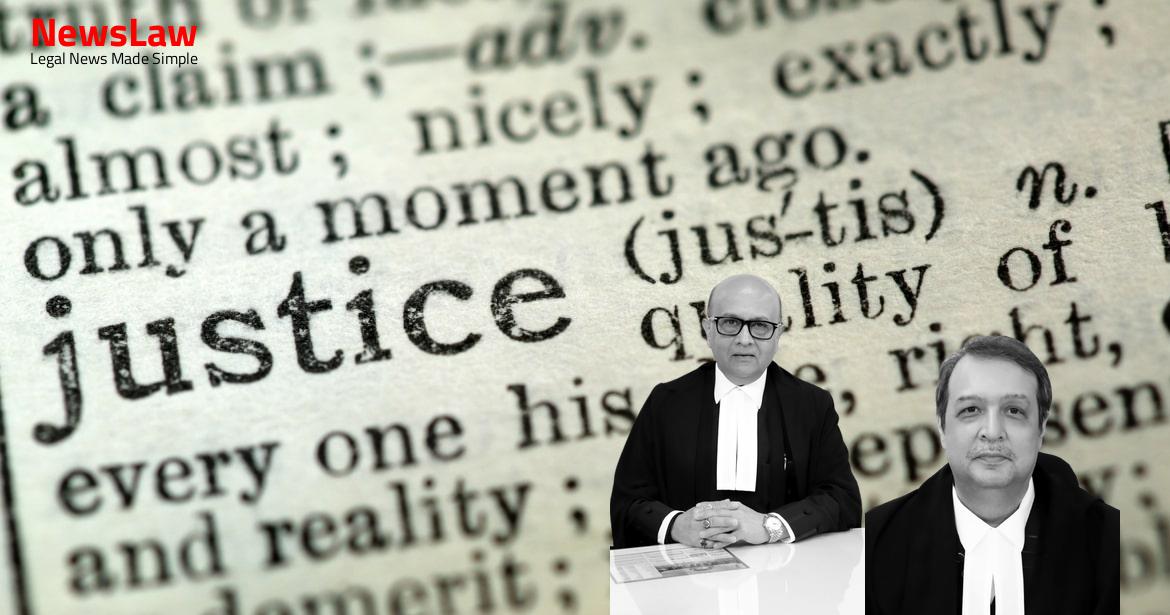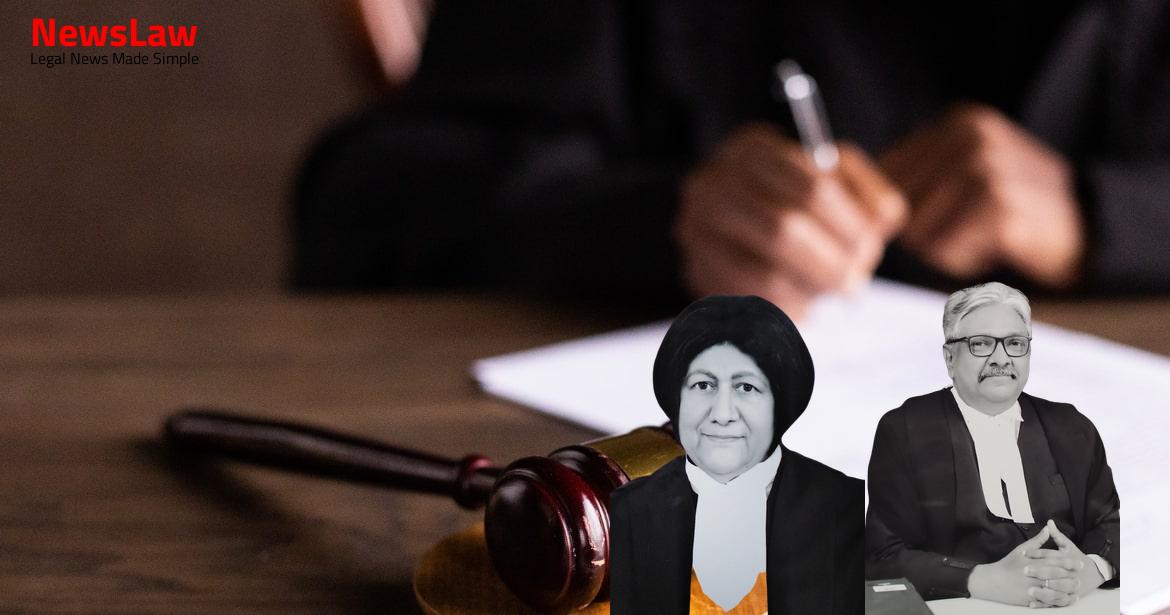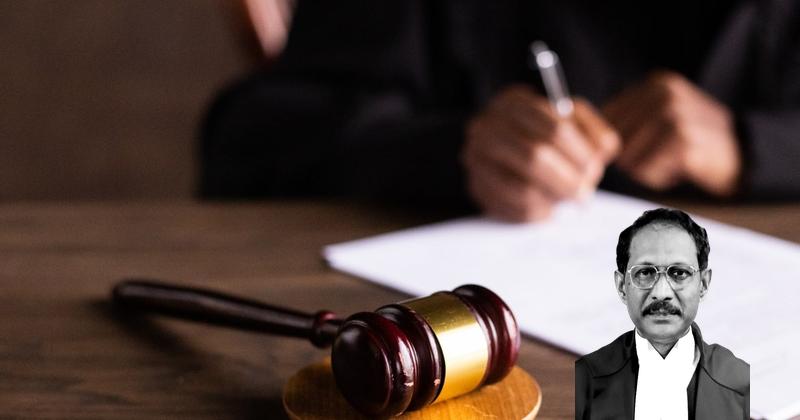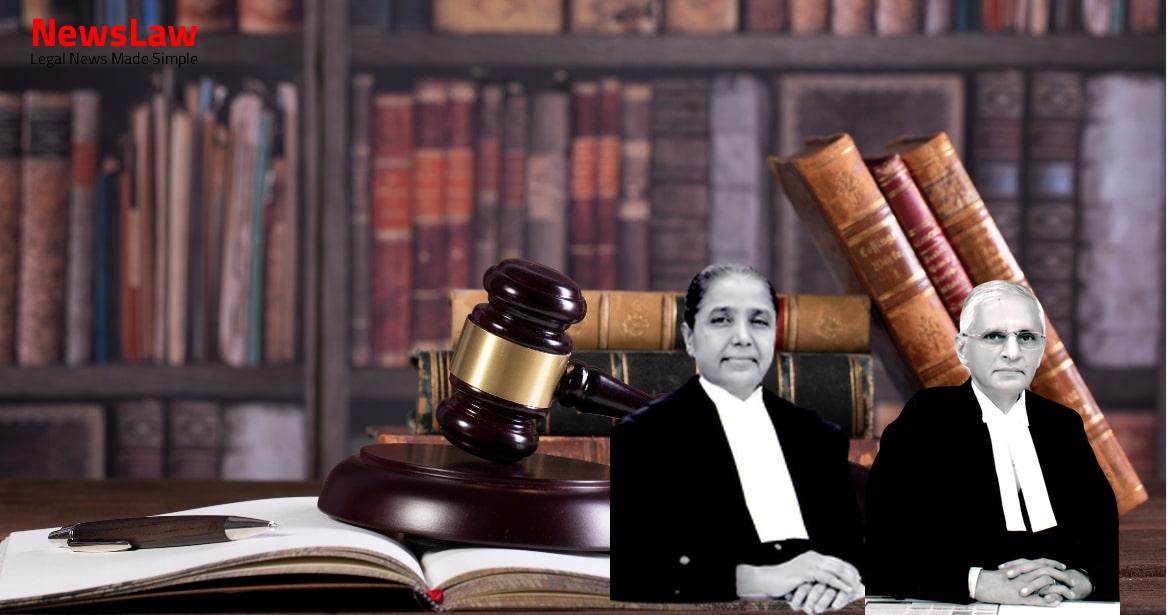In a recent legal ruling, the High Court upheld the decision of the Special Judge in a case of defamation and caste-based humiliation. The matter involved allegations of humiliation and mental anguish inflicted on a complainant, a member of the Scheduled Caste. The appellant’s actions, deemed offensive under the Scheduled Caste and Scheduled Tribes (Prevention of Atrocities) Act, 1989, were thoroughly scrutinized. Let’s delve into the details of this crucial case that underscores the importance of preventing atrocities and promoting social justice. #ScheduledCastes #ScheduledTribes #CasteBasedHumiliation
Facts
- Appellant published a video containing disparaging content about the complainant to humiliate and insult him publicly.
- Complainant, a member of the Scheduled Caste, alleges the video caused him humiliation and mental anguish.
- Video was disseminated through an online news channel with the knowledge of complainant’s caste to ridicule him.
- Allegations of murder made in the video without basis.
- Appellant’s actions deemed as an offence under the Scheduled Caste and Scheduled Tribes (Prevention of Atrocities) Act, 1989.
- Anticipatory bail cannot be granted due to the bar under Section 18 of the Act, 1989.
- The appellant challenged the order passed by the Special Judge before the High Court of Kerala.
- The High Court in its order affirmed the decision of the Special Judge and refused to grant anticipatory bail to the appellant.
- The Special Judge rejected the anticipatory bail application citing that the allegations in the FIR were sufficient to attract the offence under the Act, 1989.
- The Act was brought into force to prevent atrocities against Scheduled Castes and Scheduled Tribes and establish Special Courts for trial of such offences.
- Despite measures to improve the socio-economic conditions of Scheduled Castes and Scheduled Tribes, they were found to still be vulnerable.
Also Read: Landmark Judgement by the Supreme Court of India: Criminal Appeal No. 3114 of 2024
Issue
- The High Court raised the question of whether the offense under Section 3(1)(r) would be attracted without reference to the caste status of the complainant in the news item.
- The complainant did not allege that the appellant intentionally insulted or intimidated him with the intent to humiliate him as a member of the Scheduled Caste or Scheduled Tribe community.
- The complainant also did not allege that the appellant promoted feelings of enmity, hatred, or ill-will against the members of the Scheduled Castes or Scheduled Tribes through words, written or spoken.
- The court is considering whether Section 18 of the Act, 1989 imposes an absolute bar on the grant of anticipatory bail in cases registered under the said Act.
Also Read: Arbitration Dispute Resolution: Key Ruling by the Supreme Court of India
Arguments
- The petitioner, known as Srinijan, has a history of spreading false and defamatory content against respectable individuals to gain subscriptions for his web platform.
- The actions of the petitioner were aimed at insulting and humiliating the complainant, a Scheduled Caste member and MLA, thus violating the Act, 1989.
- Srinijan is accused of pushing Kitex Sabu to move out of Kerala to Telangana and is perceived as a young mafia don who eliminates those who oppose him.
- There are concerns about Srinijan’s influence in various sectors like sports and movies, with allegations of corruption and black money dealings.
- The petitioner’s actions not only target individuals but also harm industries in Kerala, causing some to relocate due to political pressures.
- Srinijan’s rise in wealth is linked to unethical practices, including conspiracies to drive businesses out of the state and misuse of judicial connections.
- Despite facing controversies, Srinijan continues to wield power, including through political alliances, posing challenges even to opposition parties and judiciary.
- The petitioner’s behavior reflects a pattern of abuse of power and manipulation, impacting both individuals and enterprises within the state.
- The Appellant made unsubstantiated allegations and called the complainant a ‘murderer’ and ‘mafia don’.
- The Appellant singled out the complainant based on his Scheduled Caste status and made defamatory allegations even against the judiciary.
- The Appellant exhibited a pattern of willful non-compliance with court orders, showing a disregard for the courts.
- The Appellant targeted the former Chief Justice of India, who is the father-in-law of the complainant, also belonging to a Scheduled Caste, assassinating his character.
- In a separate case, the Appellant was granted anticipatory bail but failed to cooperate with investigations.
- The Appellant filed a petition to quash the FIR before the Kerala High Court, which is pending.
- The video uploaded by the Appellant aimed to insult, humiliate, and promote feelings of hatred against the complainant, who is a Scheduled Caste member and an MLA from a reserved constituency.
Also Read: Land Auction Irregularities Case Involving Prestige H.M. Polycontainers Ltd.
Analysis
- The Act, 1989 aims to prevent atrocities against Scheduled Castes and Scheduled Tribes, provide for special courts, and relief for victims.
- The provision of Section 18 of the Act, 1989 creates a specific bar on anticipatory bail for specific offences.
- The Act targets humiliation and indignities against the marginalized groups.
- Key points include the necessity of prima facie evidence for arrest and the limited application of Section 438 of the CrPC.
- The legislative intent is to provide stringent punishment for offences against Scheduled Castes and Scheduled Tribes.
- Judicial scrutiny is important to ensure the allegations meet the necessary criteria of the Act, 1989.
- The Act caters to a separate category of offences arising from the practice of ‘untouchability’.
- The concept of humiliation under the Act must be interpreted within the socio-economic context of the marginalized groups.
- The objective of the Act is to enhance the socio-economic conditions of Scheduled Castes and Scheduled Tribes.
- Application of Section 438 of the CrPC is subject to fulfilling the requirements of a prima facie case.
- The court discussed the necessary ingredients to constitute an offence under Section 3(1)(u) of the Act, 1989.
- It was emphasized that the accused should not be a member of a Scheduled Caste or Scheduled Tribe when committing the offence.
- The intention of promoting feelings of enmity, hatred, or ill-will against members of the Scheduled Castes or the Scheduled Tribes is crucial for this offence.
- The court highlighted that an offence under this section is not established merely because the informant belongs to a Scheduled Caste, unless there is clear intent to humiliate based on caste.
- The court also delved into the provisions of Section 438 of the CrPC and its applicability to cases under the Act, stating that it does not apply despite any court order or direction.
- The ingredients required for the offence under Section 3(1)(r) of the Act, 1989 were also examined, emphasizing the need for intentional insult or intimidation with the intent to humiliate a member of a Scheduled Caste or Scheduled Tribe.
- The expression ‘intent to humiliate’ was dissected to understand the threshold for this offence.
- The court concluded that no offence under Section 3(1)(u) was prima facie made out against the appellant based on the facts presented.
- Humiliation can exist without physical cruelty, as illustrated by Gandhi’s train incident.
- Cruelty like starvation and torture may not necessarily involve humiliation.
- Insult and humiliation are distinct, as observed by Lord Alfred Denning and Justice H.R. Khanna.
- Personal freedom should be matched with societal security for a balanced community.
- Liberty is fundamental for a civilized existence, as emphasized in legal and philosophical contexts.
- The distinction between insult and intimidation under the Act is analyzed in legal cases.
- The concept of civil liberty roots in individualism and personal development.
- The importance and interpretation of natural rights and civil liberties are highlighted.
- The role of anticipatory bail in ensuring individual liberty and balancing social order is discussed.
- Legal provisions regarding bail, arrest, and prevention of atrocities against SC/ST members are examined.
- The need for a judicious application of arrest powers and a fair balance between rights and societal interests is underscored.
Decision
- The impugned order of the Special Court is upheld.
- The appellant shall be released on bail if arrested in connection with FIR No 899 of 2023.
- The Investigating Officer may impose suitable terms and conditions for the bail.
- Pending applications, if any, are disposed of.
- The Criminal Appeal is dismissed.
Case Title: SHAJAN SKARIA Vs. THE STATE OF KERALA (2024 INSC 625)
Case Number: Crl.A. No.-002622-002622 – 2024



